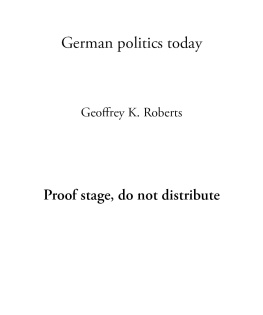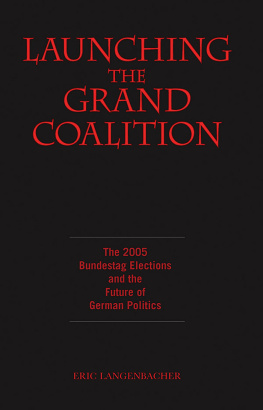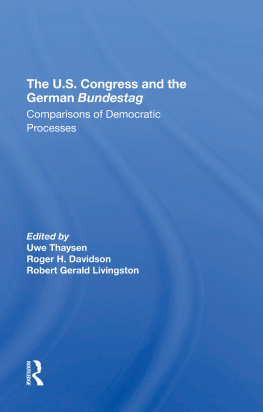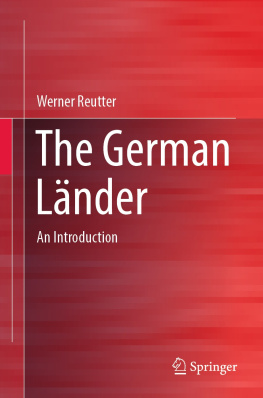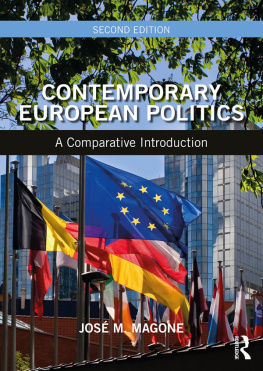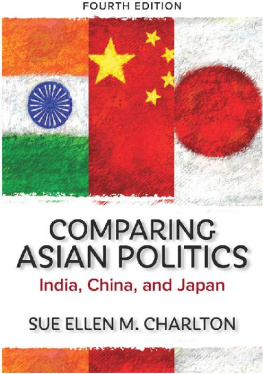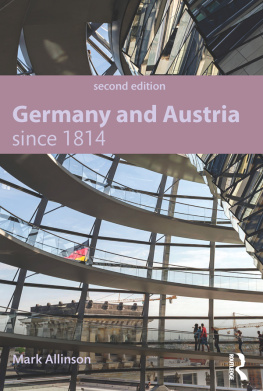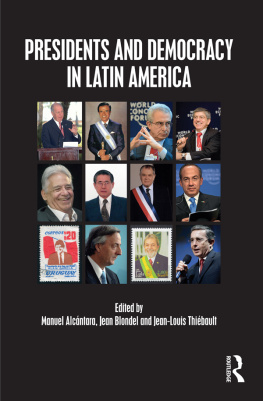German politics today
Politics Today
Series editor: Bill Jones
Ideology and politics in Britain today Ian Adams
Political ideology today, 2nd edition Ian Adams
Scandinavian politics today, 3rd edition David Arter
American society today Edward Ashbee
The US economy today Edward Ashbee
US politics today, 3rd edition Edward Ashbee
French politics today, new edition David S. Bell
Local government today, 4th edition J. A. Chandler
Irish politics today, 4th edition Neil Collins and Terry Cradden
Political issues in Ireland today, 3rd edition Neil Collins and Terry Cradden (editors)
US elections today (Elections USA, 2nd edition) Philip John Davies
Political issues in America today Philip John Davies and Fredric A. Waldstein (editors)
Devolution in Britain today, 2nd edition Russell Deacon
Spanish politics today John Gibbons
The Politics Today companion to American government Alan Grant and Edward Ashbee
European politics today, 2nd edition Patricia Hogwood and Geoffrey K. Roberts
Dictionary of British politics, 2nd edition Bill Jones
Political issues today, 5th edition Bill Jones (editor)
British politics today, 7th edition Bill Jones and Dennis Kavanagh
Political issues in the world today Don MacIver
Italian politics today Hilary Partridge
The Politics Today companion to the British Constitution Colin Pilkington
German politics today Geoffrey K. Roberts
The Politics Today companion to West European politics Geoffrey K. Roberts and Patricia Hogwood
Debates in British politics today Lynton Robins and Bill Jones (editors)
Parliament today Michael Rush
Russian politics today Michael Waller
Britain in the European Union today, 3rd edition Duncan Watts and Colin Pilkington
German politics today
Third edition
Geoffrey K. Roberts
Manchester University Press
Copyright Geoffrey K. Roberts 2016
The right of Geoffrey K. Roberts to be identified as the author of this work has been asserted by him in accordance with the Copyright, Designs and Patents Act 1988
Published by Manchester University Press
Altrincham Street, Manchester M1 7JA
www.manchesteruniversitypress.co.uk
British Library Cataloguing-in-Publication Data
A catalogue record for this book is available from the British Library
Library of Congress Cataloging-in-Publication Data applied for
ISBN978 1 7849 9257 6hardback
ISBN978 0 7190 9570 2paperback
First published 2016
The publisher has no responsibility for the persistence or accuracy of URLs for any external or third-party internet websites referred to in this book, and does not guarantee that any content on such websites is, or will remain, accurate or appropriate.
Typeset by Out of House Publishing
Contents
German politics today offers an overview of the principal features of the German political system. The sequence of chapters emphasises four important characteristics of Germanys political system: the way in which history, especially twentieth-century history, has shaped the post-Second World War political system; the stability and adaptability of that system, qualities which were demonstrated by responses to the challenges of reunification; the unusual importance within the political system of legal rules, many of which are derived from the Basic Law (the constitution of the Federal Republic); and the significance of Germanys association with European integration.
The first chapter surveys the historical background of the present-day political system. More than any other western European polity, that of the Federal Republic has been shaped by what has happened in the past. In particular, the Basic Law designed in 194849 was a direct response to the failure of Germanys first experiment with democracy: the regime of the Weimar Republic (between 1919 and 1933), and to the horrors and disasters brought upon Germany, and upon the rest of Europe, by the totalitarian Nazi regime (193345) which supplanted the Weimar Republic. But history has affected present-day politics in other ways. Questions concerning the boundaries of the German state (the German question) and Germanys proper relations with its neighbours to the east and to the west have been themes recurring through Germanys political history in the nineteenth and twentieth centuries. This chapter also reviews the development of the political system in the first forty years of its existence, and looks at the other Germany: the German Democratic Republic (GDR) and its significance for the Federal Republic in the period to 1989.
Until 1988, that first chapter would have sufficed as historical context. In the late 1980s, the post-war division of Germany seemed to be firmly entrenched as part of the German question. A few sentences about the extreme unlikelihood of German reunification occurring in the foreseeable future, and a reference to how the constitutional requirement that reunification remain an ultimate goal for the Federal Republic was incongruent with political reality, as some German politicians themselves were claiming in the 1980s: that would have been sufficient treatment of the division of Germany in an introduction to a textbook on the West German political system.
The fall of the Berlin Wall on 9 November 1989 changed everything. It showed that the future of divided Germany was not predictable. The second chapter therefore provides a brief summary of the momentous events in the GDR from May 1989 (when controversial local elections took place in the GDR, and Hungary began to dismantle its section of the iron curtain: the border with Austria), through what some commentators have called the revolution in the GDR, which certainly included the downfall of the communist regime there, to the processes which resulted in German reunification on 3 October 1990. It also examines the problems of adaptation which reunification had caused: social, economic and psychological adaptation, but of course political adaptation also. Nothing like this has been seen in recent times: the merging of two states within one nation after forty or more years of profound separation.
examines in some detail the principal influences which have shaped the present-day political system. These include the Basic Law itself and the particular pattern of political institutions to which it gave birth; the Constitutional Court, as responsible both for the interpretation of the Basic Law and for adjudication of controversies concerning its provisions; and a variety of other influences, ranging from the social market economy to political culture, which have shaped and constrained the development of the political system of the Federal Republic.
reviews the structure, operation and political effects of Germanys particular version of federalism.
In .
Where there is policymaking, and consequently the power to affect for better or worse, for richer or poorer the fate of individuals, groups, business enterprises, trade unions or other associations, one can expect to find interest groups at work. The Federal Republic is no exception. In the role of interest groups is examined, together with their opportunities to affect policy, the political strategies they adopt, and the structure of the more significant interest groups.

